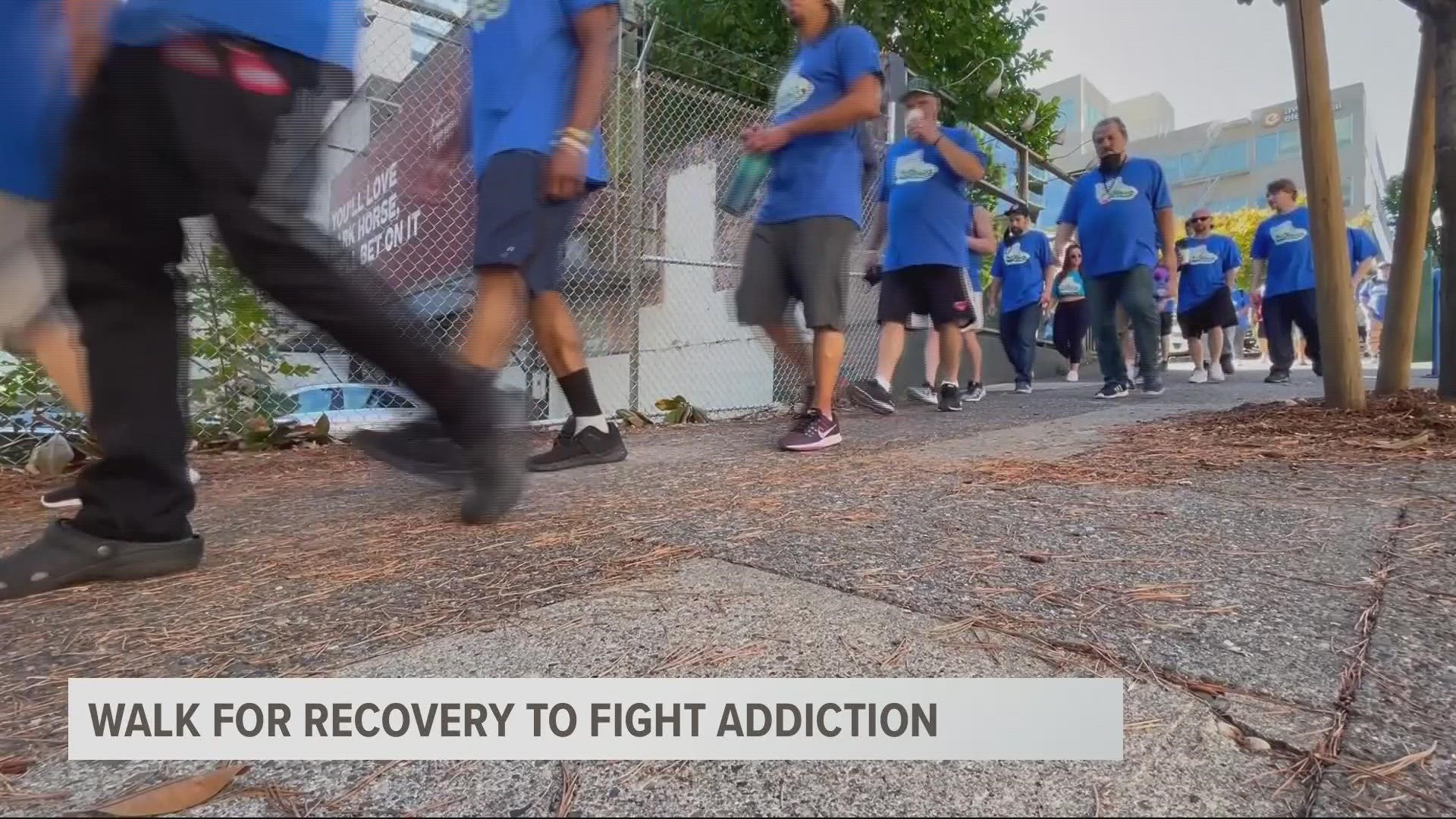PORTLAND, Ore. — Hundreds are fighting for more awareness and resources for substance abuse programs in Oregon, joining the Walk for Recovery Saturday.
Groups clad in blue shirts left Portland City Hall at staggered intervals throughout the day.
For the last month and a half, Doyle Griffin has been in recovery for alcohol at Fora Health, a residential treatment program downtown.
"I got complicit," Griffin described of his alcohol use. "Ready to get out there ... achieve some things in my life."
He and dozens of other people in recovery echoed that sentiment, marching through the city.
Oregon Recovers organized the event, emphasizing the need for statewide intervention to curb rising substance abuse problems.
"Continue to talk to your friends and your family about the need," urged Mike Marshall, cofounder and director of Oregon Recovers.
The Centers for Disease Control estimates the number of people dying from overdose in Oregon rose 36% between February 2020 and February 2021. Oregon's chief medical examiner said alcohol-related deaths increased 71% in 2020 compared to 2019.
"I'm here for my own recovery," said participant Marissa Haro. "To show people it's possible."
Haro is now more than three years sober and works for Northwest Instituto Latino de Adicciones, helping others in the Latinx community receive culturally specific recovery assistance.
"She's fought and she's here," said her daughter Michelle. "And I'm here just to support her."
Jerrod Murray, executive director of Painted Horse Recovery emphasized the importance of culturally specific programs so that people of different backgrounds don't get lost in the system.
"My brother died from a heroin overdose last year," Murray said. "It really broke my heart. And I think the thing that it did was make me double down on my recovery."
Another participant was Courday Rose of Portland. He said he lived on the streets a couple years ago.
"I used to use every day, and recovery changed my life," Rose said. "There's a stigma ... but people need to understand, this can happen to anybody."
Director of Multnomah County Health Department Ebony Clarke said the pandemic caused a rise in mental health concerns.
"Anxiety, depression, hopelessness and loneliness," she said. "We're trying to get the word out that they're not alone ... that there is help."
The county offers resources including detox, residential and outpatient programs, and peer support.
A 24/7 crisis hotline helps connect people with those programs.
"It's hard doing this on your own," Griffin said. "And I know I'm not alone."

